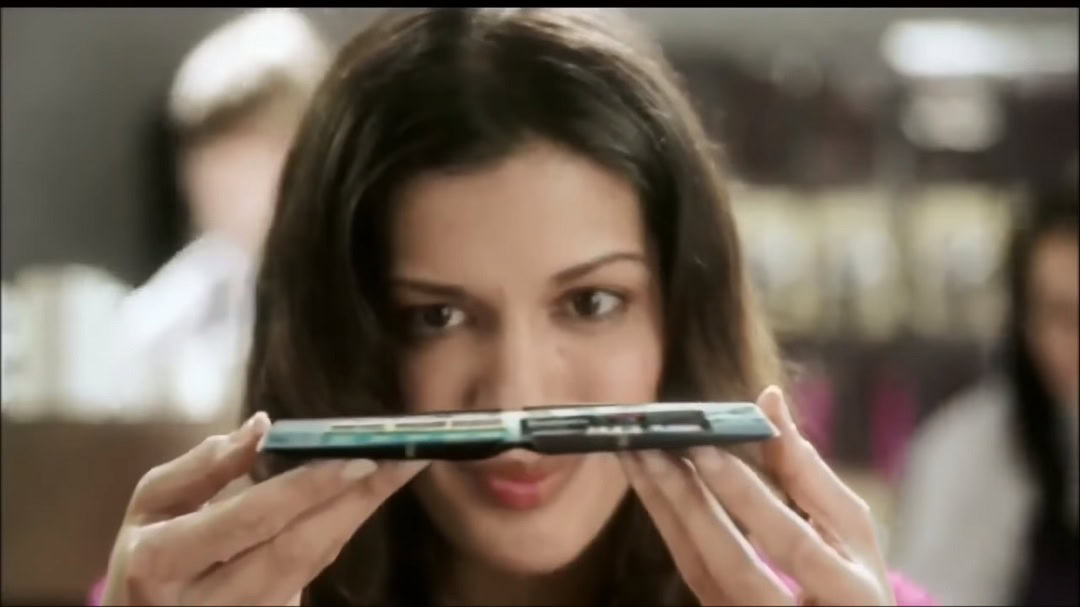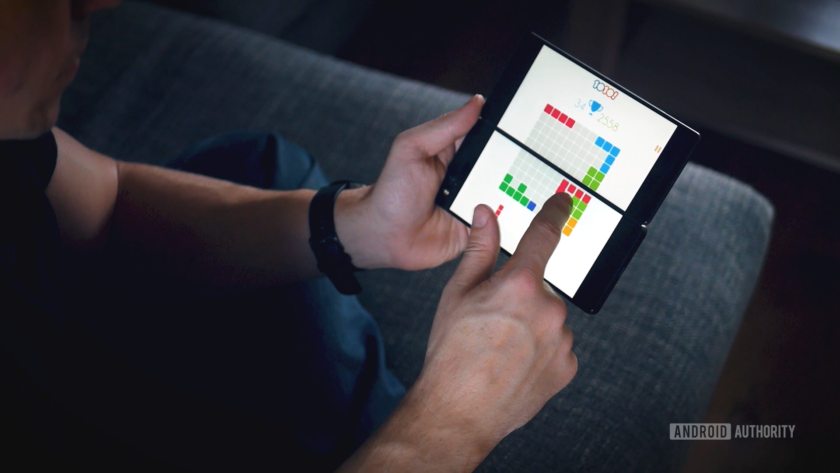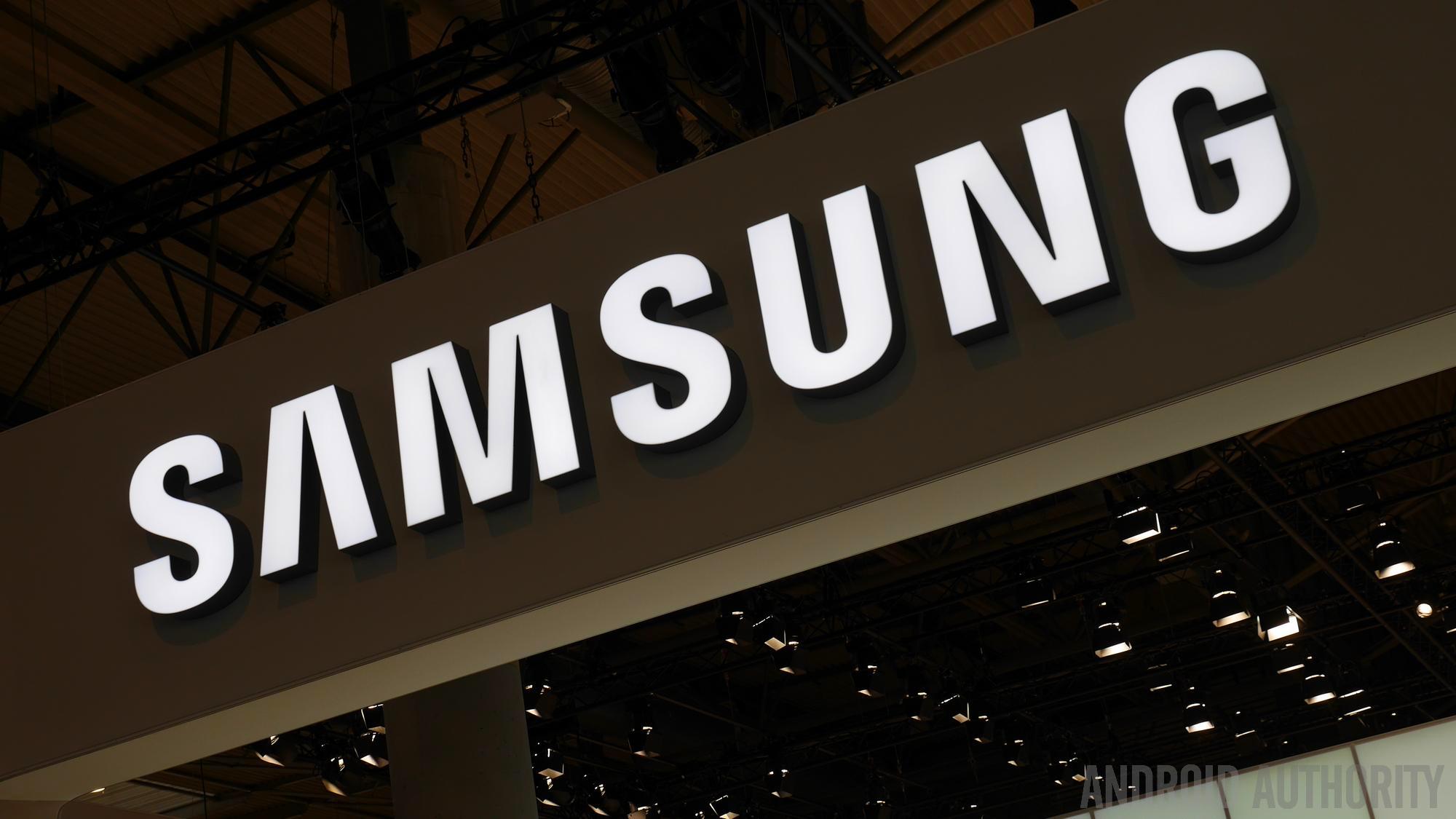Five ways foldable phones could change the game
After years of incremental improvements, smartphones are hurtling towards a big technological leap: folding displays.
Foldable phones have been around the corner for years: we've seen patents, prototypes, manufacturing and rumors. Heck, Samsung's mobile chief has even talked openly about the company's progress with foldable displays.
The flexible phone chatter of the last few months has had a different feel, though. It looks like 2019 could be the year the floodgates open.
ZTE has already launched one product in the "folding" category: 2017's ZTE Axon M. Unlike that device, which has two separate displays and folds in the middle, the new breed of phones is expected to set the world alight with single, flexible screens.
These devices may come in various forms, but the first versions are tipped to have an "outward folding" display, wrapping around the front and back, rather than facing each other inside like the pages of a closed book.
Here's how tech like that could change the industry.
New ways to interact
For the past few years, manufacturers made smartphones better, with more RAM, nicer cameras, and faster processors in each new iteration. Barring some minor exceptions like the fingerprint scanner (which I'm told will, one day, be the way to pay for stuff at the store), nothing has changed what a phone does, just how well it can do it.
The 4K display might look fancier than the HD display, but its core function is the same. On the other hand, when the second camera was added to phones, it opened up new opportunities: face-to-face video calls! Selfies! Nobody wants to go back to the days before front and rear cameras, and a folding display may have the same impact.
Flexible screens could essentially turn a single display into two displays. Dual-monitor setups are well established in the computing world. They're a quality of life improvement some people can't live without. Folding phones could bring similar multitasking benefits.
The recent apps or multitasking menu on Android was instantly popular because it speeds up how quickly you can access a previous app — but what if you could pin the previous or most used app to one of your screens? What if you could have shortcuts to any frequently accessed information or feeds there? Rather than half a screen each, it'd allow for a full-sized split-screen mode. Sound enticing?
It's not just shortcuts, either: apps and games could be developed with two displays in mind, providing additional functionality. Overlaid buttons and toggles may not need to crowd the display if they could easily be planted on another, and we could see the rise of Nintendo DS-like games (can I get a Legend of Zelda: Spirit Tracks port please?).
In one move, manufacturers could double the smartphone display area and provide some killer new features to boot.
All this is based on the assumption the phones will just be built to f0ld in half. We could see even more folds, for three- or four-screen setups. The screens themselves could even allow for different input methods, not just "pinches," "long presses," and "swipes," but perhaps "bends" and "flexes" too.
Manufacturers have always tried to get more smartphone screen onto a smaller frame. In one move, they could double the display area and provide some killer new features to boot.
Cameras will become much better
Smartphone cameras are the most important feature of the phone for many, and manufacturers are under pressure to deliver great experiences on the front and rear of their phones.
This has worked out pretty well so far. Front cameras are geared towards portrait images for selfies and video calling. Rear cameras are dedicated to, well, everything else.
However, this ostensibly leads to one camera being worse than the other, as manufacturers try to optimize their spending and resources. With folding phones (specifically, outward folding phones), the main camera could act as both the front and rear camera, depending on whether the device is open or closed.
If your phone's front and rear cameras were as good as the Pixel 2's main snapper, would you complain?
This would mean OEMs could focus on one exceptional camera, rather than splitting their attention between two, and free up valuable space inside the handset for other components.
Making one great camera setup may mean we lose the specialization we've come to see in recent times, but if your phone's front and rear cameras were as good as the Pixel 2's main snapper, would you complain?
No more cracked screens
Okay, folding screens may not rule out cracked screens for good, but they are set to make them far less likely. As folding displays must be flexible by nature, they should be far less likely to shatter in an accidental trip to the floor.
Current smartphones have made great strides in this regard — Corning's Gorilla Glass has made them sturdier and more resistant to breaks than ever before — but they're still pretty brittle. A fact only made worse by the current war on bezels and glass sandwich design trend.

AGC creates high-durability flexible glass we could soon see in folding phones
Though we don't yet know which materials will be used in flexible display production (plastic OLED or LCD look like front-runners), we know it will be fundamentally more impact resistant, which means we could be saying goodbye to cracked screens, expensive repairs, and bulky smartphone cases.
More choice for consumers, breathing room for manufacturers
Should I get a phone with a 1080p display or a 1440p display? Do I want 3GB of RAM or 4GB of RAM? These are the kinds of questions you might have when buying a phone today, but you'll soon have a much more interesting one: do I want a screen that bends or not?

The LG V30 (left) and the Galaxy Note 8 (right) might seem like wildly different phones to us enthusiasts, but not to everyone else.
This is a welcome eventuality: a brand new flavor of handset that gives us another choice come upgrade time. Smartphone manufacturers won't instantly ditch the regular models either, so you won't be forced to get a folding device if you buy a new Samsung flagship or anything. The Samsung Galaxy X, Samsung's rumored folding phone, would likely arrive right alongside the Galaxy S10 and S10 Plus, just like the iPhone X arrived alongside the iPhone 8 and 8 Plus.
Smaller manufacturers may be able to capitalize on folding phones' weak spots.
This new technology will no doubt also benefit manufacturers. Right now, everyone's battling to outsell each other with, in some cases, extremely similar products. Folding phones could give manufacturers with more cash a new space at the top end of the market, giving smaller brands a chance to focus on what they do best: make regular smartphones.
Companies like OnePlus and HMD Global can let Huawei and Samsung worry about folding phones for the next couple of years. The first generation of devices will likely be expensive and unpolished anyway. Smaller manufacturers may be able to capitalize on folding phones' potential weak spots, like short battery life and thick bodies.
Some smart flexible phone ideas might even trickle down to regular smartphones, letting OEMs offer similar ideas on cheaper devices.
The final nail in the tablet coffin
Tablets are becoming a rare breed. In 2014, Best Buy CEO Hubert Joly said, "I don't think there's a category that ever took off so quickly and so big in the history of tech." I bet he's never seen one die like it, either.
The reason is partly that tablets, laptops, and smartphones have merged in recent years. We've gotten small form factor touchscreen laptop hybrids, Chromebooks — which deliver an Android-like experience in a laptop — and large-screened smartphones that work as PCs. The folding phone could make them disappear for good.
Opening up a flexible handset to double its display area would effectively turn it into a small tablet. With the same operating system, these devices would be a more than suitable replacement. The only downside is they'll probably cost more in the early years.
Still, when both touchscreen laptops and folding phones can become a tablet, what's the point of getting just a tablet?
What's your take on folding phones? Are they going to eventually replace regular smartphones? Will they be another fad? Give us your thoughts in the comments.
#Google #Android #Smartphones #OS #News @ndrdnws #ndrdnws #AndroidNews









